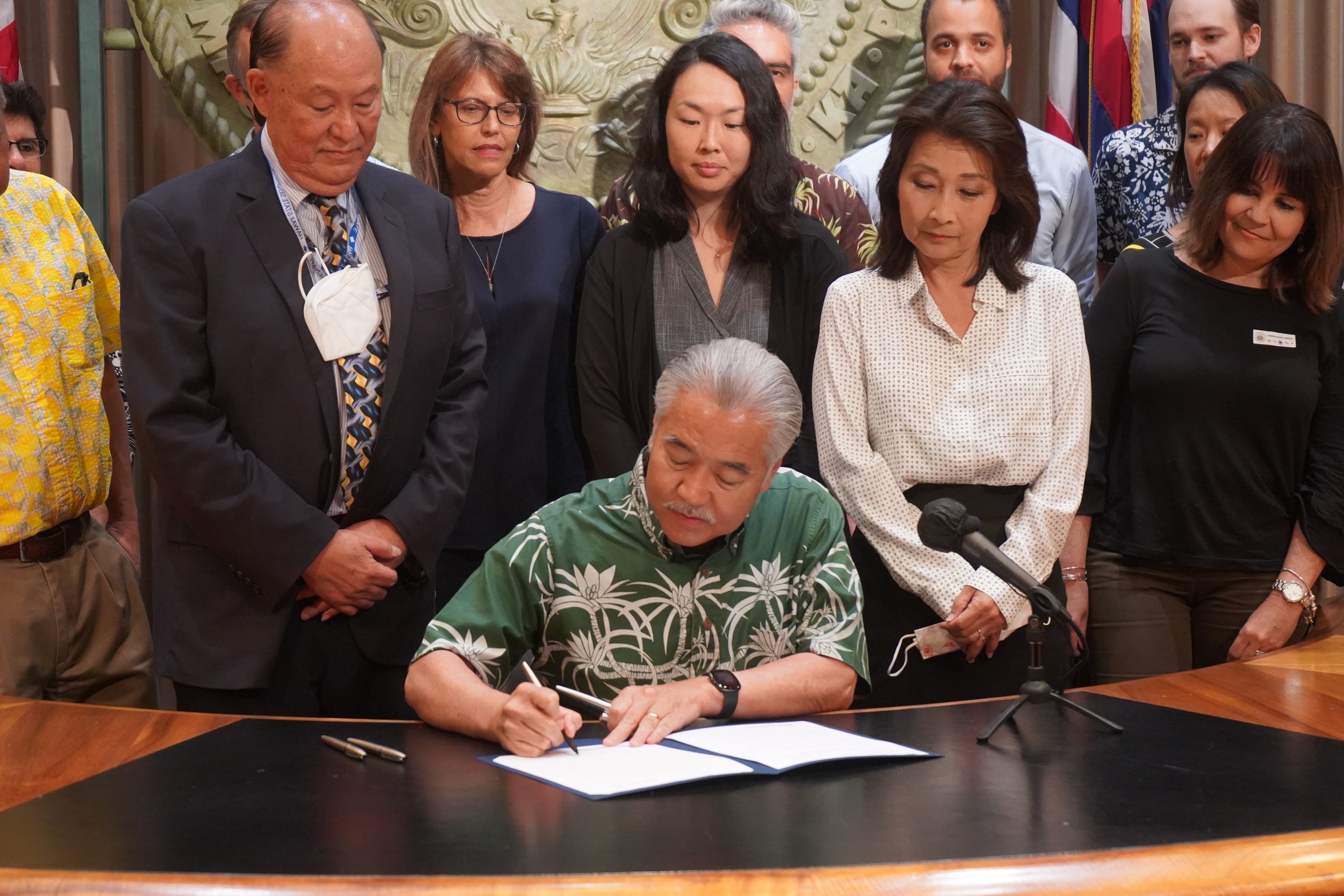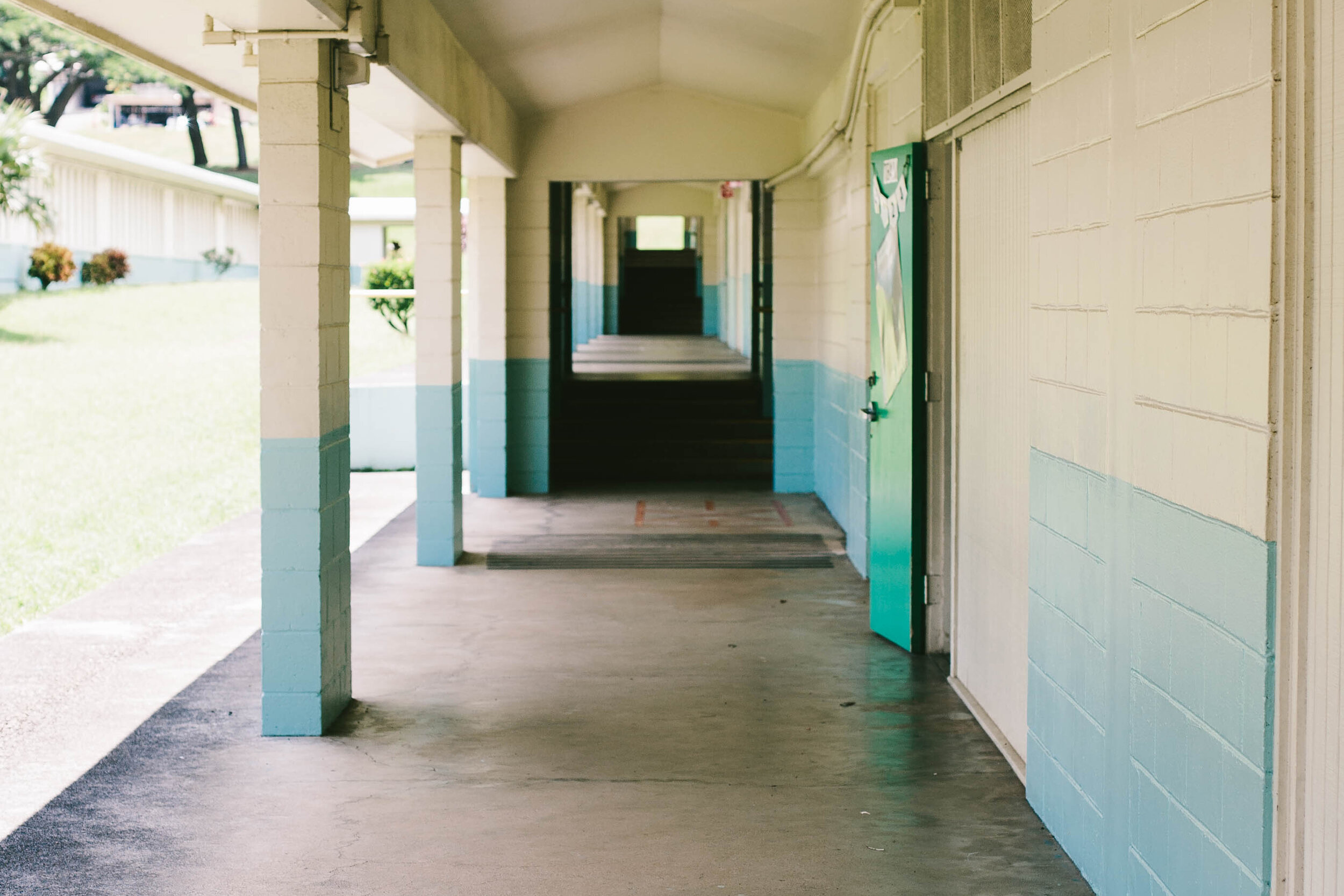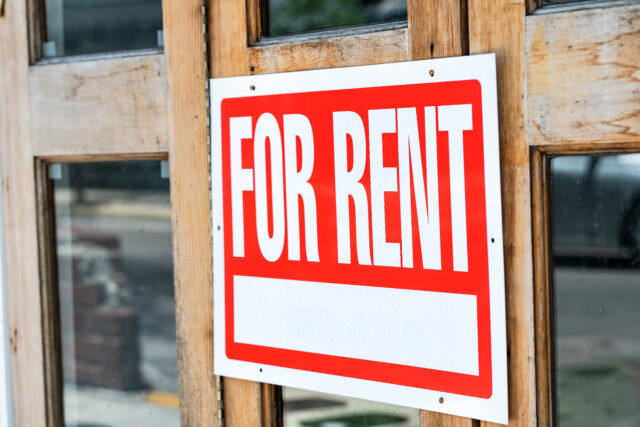
With cloudy state finances, Hawaiʻi’s ‘rainy day’ fund held for future rainy day
“You have a rainy day fund, and it’s supposed to be used for emergencies,” said Tom Yamachika, president of the nonprofit Tax Foundation of Hawaiʻi. “You’ve got an emergency.”

Report: State law successfully limited evictions during COVID-19 pandemic
A state-mandated free mediation program was a resounding success in preventing evictions during the COVID-19 pandemic, according to a report.

Report: Mandatory mediation saved hundreds of tenants from eviction
While the Act 57 program ended in August 2022, Hawaiʻi Appleseed will be advocating for a permanent rental relief program that includes mediation to stabilize affordable housing.

Off the News: Keeping renters in their homes
Act 57 diverted as many as 1,201 eviction cases in 2021, benefiting tenants and landlords, according to a Hawaiʻi Appleseed Center for Law & Economic Justice study.

Planning averts spike in COVID-era homelessness in Hawaiʻi
Hawaiʻi Appleseed last week released the results of a study showing “a pre-litigation mediation program” known as Act 57 helped renters and landlords and reduced both court costs and a strain on the Judicial system.

Eviction mediation study: KITV4 talks with Kenna StormoGipson with Hawaiʻi Appleseed Center for Law and Economic Justice
Local nonprofit Hawaiʻi Appleseed Center for Law & Economic Justice just released the results of its study that look at whether Hawaiʻi’s Act 57 mediation program worked.

Ige signs $18 minimum wage increase, tax refund
“This historic legislation represents a significant and meaningful step toward transforming our economy so that it works for everyone,” said Hawai‘i Appleseed Executive Director Gavin Thornton. “But much more remains to be done.”

Report: Federal funding flaw shortchanges Hawaiʻi’s school nutrition programs
The Hawaiʻi State Department of Education is paying tens of millions of dollars to feed Hawaiʻi school children due to a flaw in the funding method used by the federal government, according to a report.

Editorial: Hope on horizon for more housing
Might this be the year that Hawaiʻi truly moves forward in providing affordable housing to its residents? With as much as $1 billion in overall funding for housing under discussion as the state legislature reaches its home stretch, it’s possible.

Hawaiʻi schools are buying less local food during the pandemic
Despite new legislation requiring public schools to serve student meals with more local ingredients, advocates say they are frustrated by a regression in local food initiatives.

Hawaiʻi lawmakers finish session after huge federal aid boost
The pandemic wouldn’t have hurt nearly as much if Hawaiʻi residents were making wages that paid enough to cover their basic needs.

The pandemic has transformed how aid groups help elderly in need
Federal COVID-19 relief funds helped local groups coordinate outreach to better serve kupuna who were often isolated during the pandemic.

State offers more food stamp flexibility amid record participation
Most SNAP applications are now processed online and members can now use their EBT cards to make online purchases for pick-up at select Walmart locations.

Hawaiʻi lawmakers mull mediation to prevent mass evictions after moratorium lifted
A bill would require landlords to enter mediation upon a tenant’s request, but some advocates say the measure doesn’t do enough to protect renters at risk of eviction.

DOE improves free school breakfast program during pandemic
Hawaiʻi Appleseed has monitored the ranking for years, and has been working with the DOE to improve those numbers.

Gaps in Hawaiʻi eviction moratorium leave some renters scrambling for housing
The state eviction moratorium doesn’t protect every renter. And being kicked out when you’re unemployed makes finding housing much harder.

Furloughs likely to worsen delays of unemployment, Medicaid and SNAP claims
Governor Ige’s plan to furlough state workers could further increase the already-maddening length of time it takes to process critical services like unemployment.

Hawaiʻi landlords rejecting $8M in overdue rent
Some island landlords have rejected about $8 million in direct payments to cover the rents they’re owed because they do not have general excise tax licenses and are not paying taxes on their rental income.

Hawaiʻi seeks to be seen as a remote workplace with a view
But advocates say housing is a real concern in a state where there’s an affordable housing crisis.

As economic pain of pandemic widens, need for food stamps soars
The number of Hawaiʻi residents receiving SNAP benefits has risen from about 155,000 last year to 179,000—a 15.4 percent increase.
